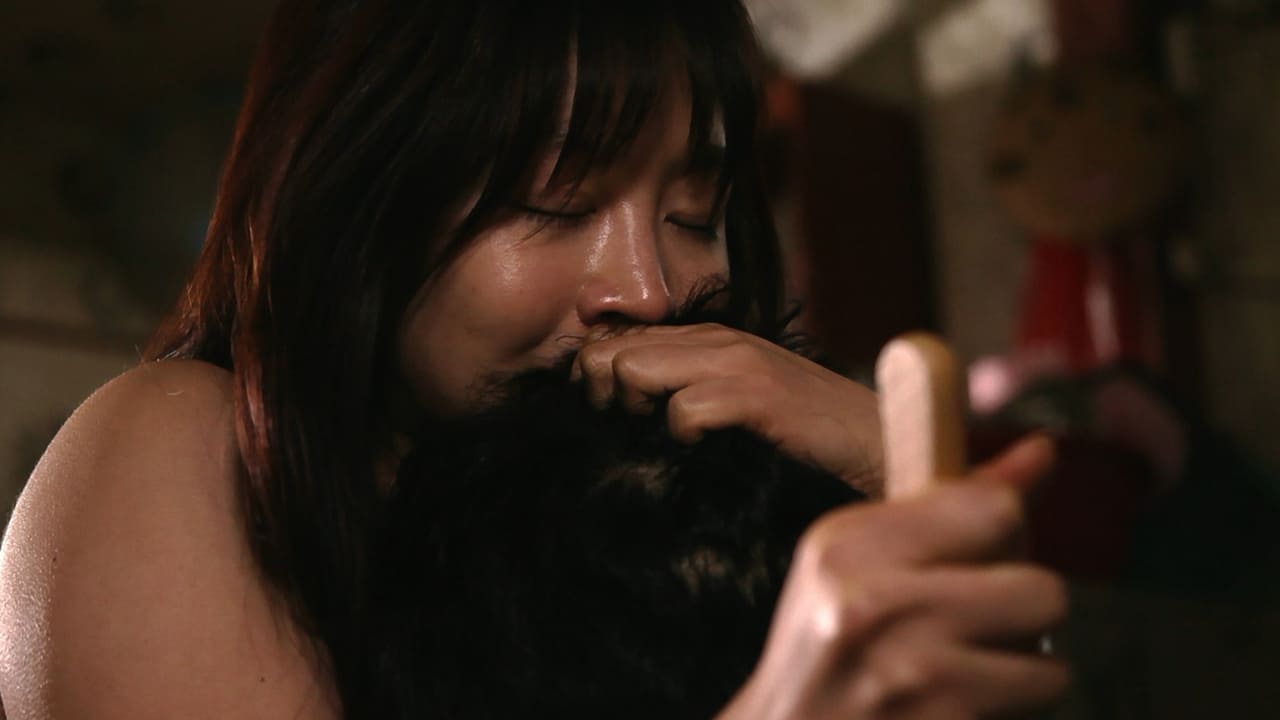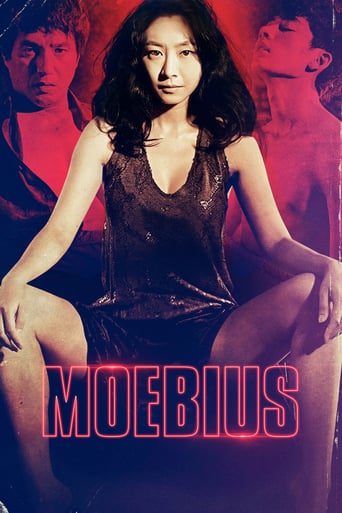



Although it has its amusing moments, in eneral the plot does not convince.
View MoreThis is a small, humorous movie in some ways, but it has a huge heart. What a nice experience.
View MoreThe movie's neither hopeful in contrived ways, nor hopeless in different contrived ways. Somehow it manages to be wonderful
View MoreLet me be very fair here, this is not the best movie in my opinion. But, this movie is fun, it has purpose and is very enjoyable to watch.
View MoreUnable to find the subtitle option in the DVD menu, I held on to the remote with my finger poised over the subtitle option, ready to bring them up if they were not embedded. They were not embedded. There were none. There is no dialogue. That was only shock number one. As this incredible but very difficult film progresses, the shocks keep coming. Others have written most eloquently of this film so I will not dwell upon the Freudian and Buddhist overtones suffice to say this is not a frivolous or exploitative movie even if I did have to turn away once or twice. Many point out the humorous nature of this but smile though I did a few times it is difficult to laugh with a pistol pointed at your penis and a knife in your back. So, there is castration, self mutilation, rape, incest, genital surgery, sex and violence. All fairly explicit but in fairness to this great director, also very much to the point.
View MoreThis movie is about penises getting chopped off and the aftermath therein. It is the epitome of a psycho-sexual thriller and it has all the Freudian trappings: castration anxiety, Oedipal anxiety, incest, impotence, masochism, phallocentrism, rape ad nauseum.The primary theme of the film is a phallocentric look at emasculation. However, this does not necessarily make it a misogynistic film. Indeed, through its phallocentrism it reveals maleness to be much more infantile (there's Freud again) than it may intuitively seem.A father cares about his son's sexuality and his safety. However, he is emasculated by the act of his son's emasculation (by the Oedipal matriarch). The gun he uses to sympathize with his son is also a phallic symbol and the blood splatters he spares his son are the final orgasm. The Oedipal complex is in full effect here, even before it is revealed that once the son regains his sexuality he can only be made potent by the one who robbed him of it in the first place.There is a woman in the film who represents the interloper into the family unit. Ironically, the interloper in the relationship between the father and son is not the mother, but the woman who represents the pure sexuality of the other. This also reveals to us a life lesson: We can't always love the one we screw, and we can't always screw the one we love. This is a tragic dichotomy that punctuates this Shakespearian tragedy of a film.There is finally the Buddhist redemption from the Western, Freudian pathology. Elimination of suffering is to be found, not in the pursuit of pleasure or passion, but in indifference to both pleasure and pain. Masochism and hedonism are two sides of the same coin and reality is to be found, not in a Jungian choice between love or fear (or the Freudian sex or death), but in the middle path: indifference. To not care is to become enlightened.
View MoreYou have to love Asian cinema. It never holds back on any topic no matter how insane. Here we have an entire film about a father and son who are basically neutered by the woman of the household out of revenge for adultery. The rest of the film is about the agony of men dealing with life bereft of their penises, and how they try to get their penises back. Keep in mind this film has no dialog whatsoever which is not an unnatural as you might think, but it is still quite odd and seems a bit unbelievable at times. Perhaps there is some connection between speech, the word, and the penis? Yet it also creates a kind of emotional intensity that sets the film apart. Like Pieta, I wonder what the point is of all the perversity in this film. I suppose if you want to tie it into Freudian psychology, Greek tragedy etc that is one approach. Perhaps it is an absurdist tale about modern nonsense. Perhaps the black comedy satire this film is, somehow helps us come to terms with out repressions in the modern age not to mention our materialism, and hypocrisy. There is a repeating theme in Kim-Ki Duk's films of redemption through religion. The son who is castrated finds redemption in the Buddha. The son pays for the father's 'sins' at the hands of the mother. The mother corrupts her son further through incest to spite the father. In Pieta, the only character at peace with themselves is the one who gives up materialism and seeks the Buddha. I notice a pattern in the films of Kim-Di-Duk. The agent of justice is as 'bad' as those they punish for their transgressions. The ideal of a heroic moralist is lost in this Korean film. Instead everyone continues to fuel the fire of their own personal karmic retribution getting deeper and deeper, never really getting to the end, just deeper. Of course I may see this idea through the western lens of morality, while karma is more of an inherent, impersonal law of cause and effect, that no one controls. It is a force of nature really, assuming our interpretation of it is correct. But enough theory. The acting is strong in this film. The story line is captivating. This film makes insightful points about human 'nature' such as the intermingling of pain and pleasure, or the amorality of the human animal. The extreme topic of this film may be a bit gratuitous and make you wonder what the point is though. The actors portray their pain and suffering in a believable, compelling way. The dark subject matter makes the film unapproachable by most though. I don't mean dark in some emo, Gothic poser fashion. It is harrowing watching the actors go though their pain. Perhaps that is the point of this film...to watch people suffer and feel sorry for them while being repulsed at the same time.
View MoreAnd I thought Pietà was appalling! But the 19th film by director Kim Ki-duk really brings on screen something that reaffirms his reputation as one of world cinema's highly controversial directors. One of the most uncomfortably hilarious films I've to sit through, Moebius tells the story of a destructive family in which the husband is having an extra-marital affair, the wife is jealous plus angry & their son who ends up paying the price for his father's acts.Written & directed by Kim Ki-duk who really has a weirdly disturbing sense of humour, the film has no dialogues throughout its runtime & even music is absent except for the final moments. There is a lot of hilarity in the film but it comes with a price that not everyone will be willing to pay. The story begins on an extreme note but never really settles down for a bit & it'll have you go WTF every few minutes.On an overall scale, Moebius presents its notorious director going way too far with the subject matter than he did in his last feature & although as pretentious it may be, it really won't be easy to get it out of your head once you've seen it. Infused with Buddhist symbolisms that completely went over my head, Moebius is an extremely scarring cinematic experience that'll find you laughing while your eyes bleed.Watch it at your own risk & remember what you're going in for. You've been warned.
View More